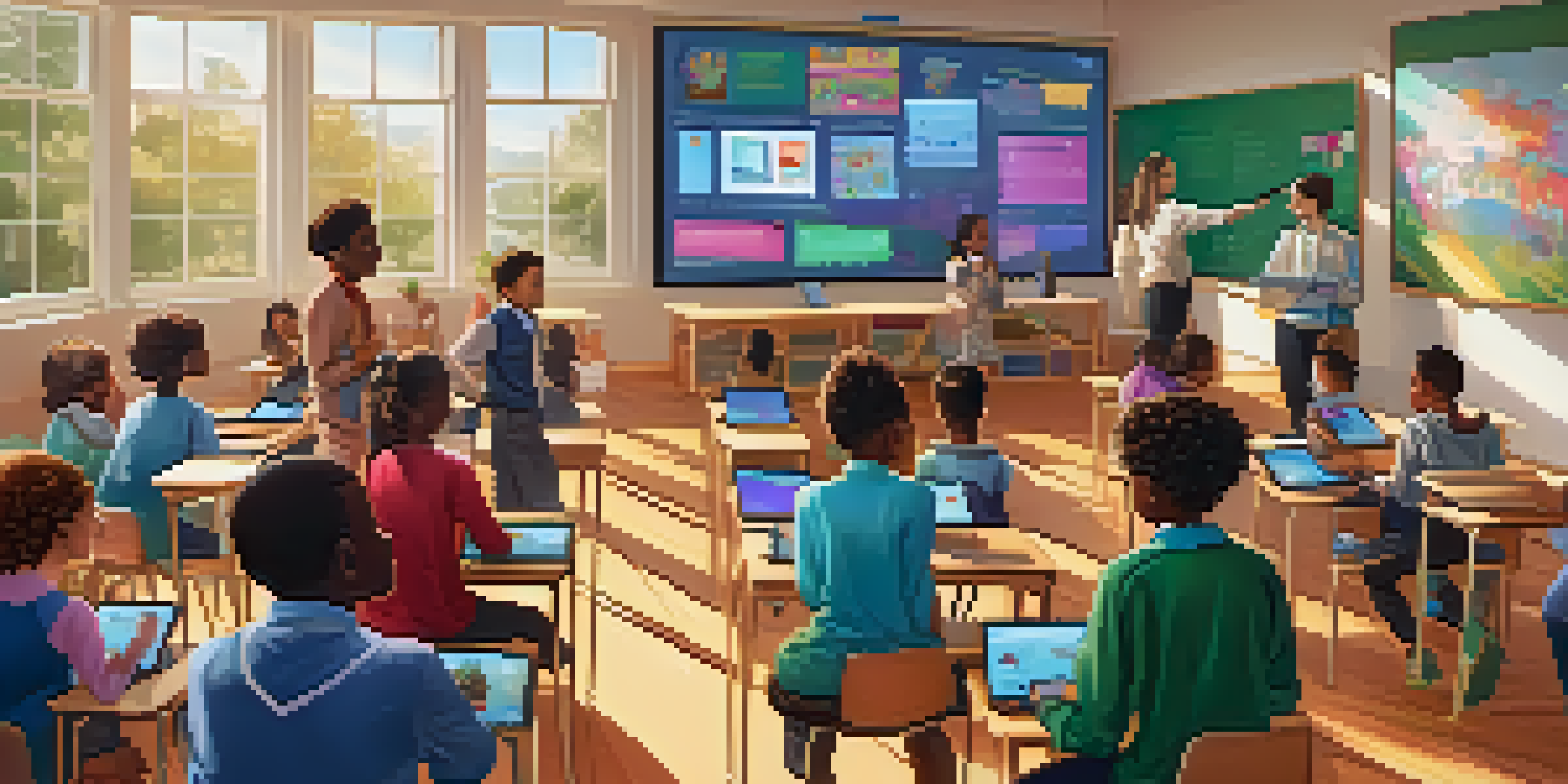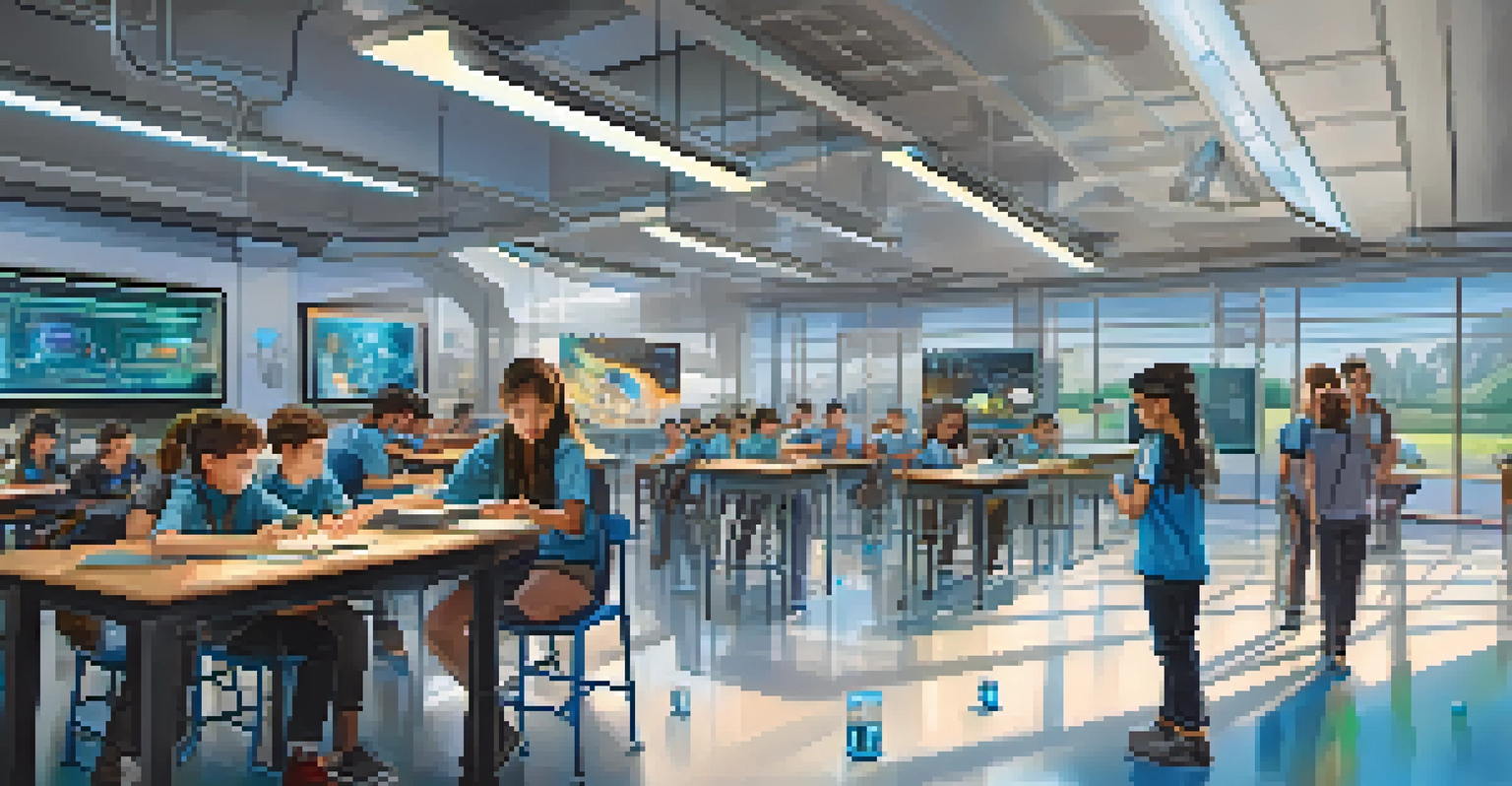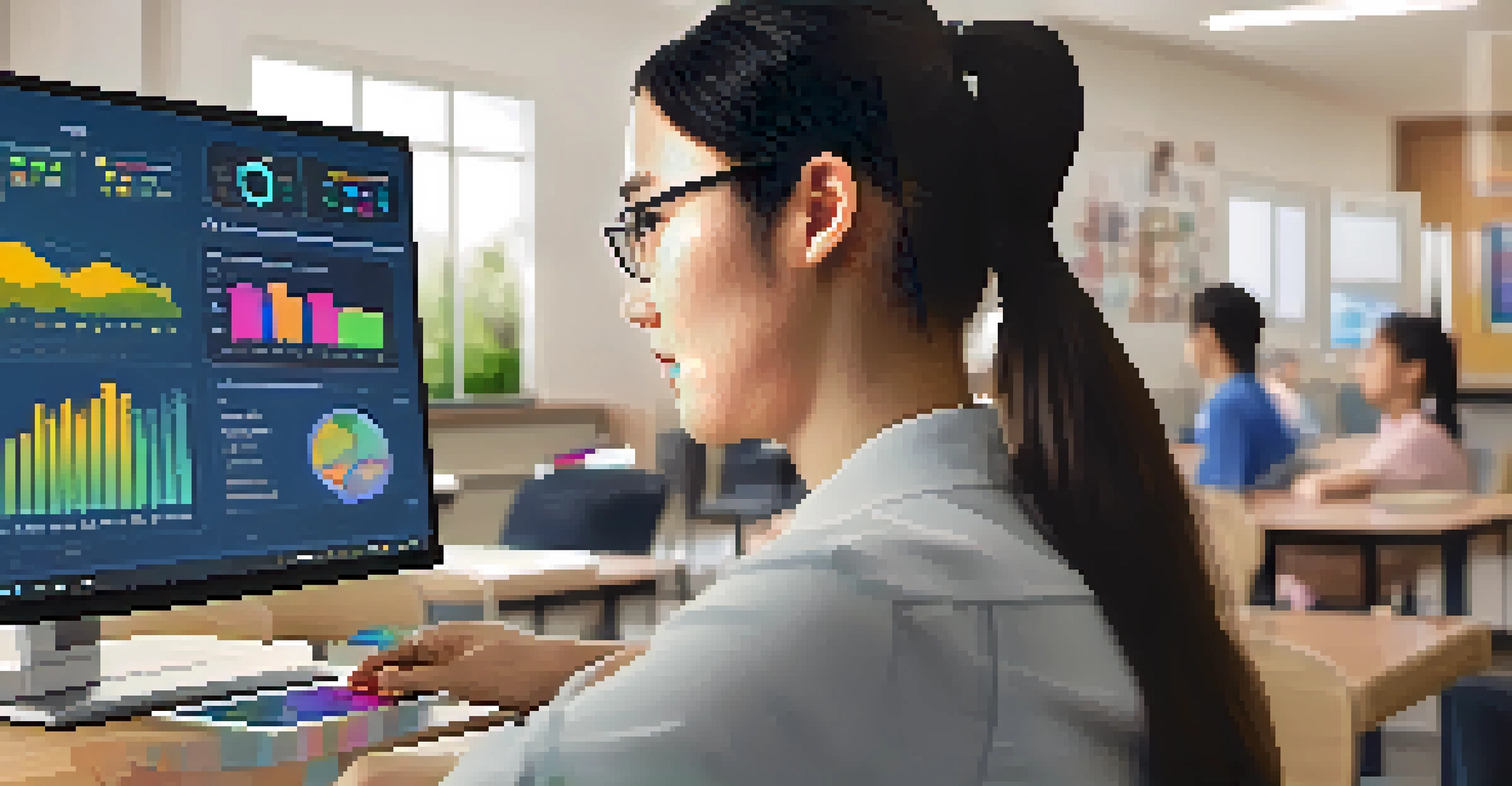Artificial Intelligence in NYC Schools: A New Frontier

Understanding AI and Its Importance in Education
Artificial Intelligence, often referred to as AI, is a technology that allows machines to simulate human intelligence. In education, this means creating systems that can personalize learning experiences based on individual student needs. With AI-driven tools, educators can enhance engagement and improve outcomes by tailoring content to each student's pace and learning style.
The great aim of education is not knowledge but action.
For instance, platforms like DreamBox Learning use AI to adapt math lessons to students' abilities, making the learning experience more effective. This personalized approach not only helps students grasp concepts better but also fosters a love for learning. By understanding the role of AI, educators can leverage these tools to create a more dynamic classroom environment.
As AI continues to evolve, its potential in education becomes more promising. Schools in NYC are beginning to embrace this technology, setting the stage for innovative teaching methods that can revolutionize traditional educational practices.
AI Applications in NYC Classrooms
In New York City, schools are implementing AI in various ways to enhance the educational experience. For example, some classrooms are using AI-powered tutoring systems that provide immediate feedback to students, helping them address misconceptions in real time. This kind of support is invaluable, especially in large classrooms where individual attention can be scarce.

Additionally, AI tools are being utilized for administrative tasks, such as grading and attendance tracking, freeing up teachers to focus more on instruction and student interaction. Tools like Gradescope help educators streamline the grading process, allowing them to devote more time to engaging with students and less time on paperwork.
AI Personalizes Learning Experiences
Artificial Intelligence enables personalized learning, adapting educational content to meet individual student needs and learning styles.
Moreover, AI is making strides in supporting students with special needs. Customizable learning platforms can adjust content and assessments, ensuring that all students receive the support they need to succeed. This inclusive approach not only benefits individual learners but enriches the classroom community as a whole.
Challenges of Integrating AI in Education
While the benefits of AI in education are significant, there are also challenges that schools must navigate. One major concern is data privacy; schools collect a vast amount of student information to personalize learning, and protecting this data is crucial. Parents and educators alike worry about how this information is stored and used.
Technology is best when it brings people together.
Another challenge is the digital divide. Not all students have equal access to technology, which can exacerbate existing inequalities. NYC schools are working to address this by providing devices and internet access to underprivileged students, but there is still a long way to go.
Lastly, teacher training is essential for successful AI integration. Educators need to understand how to effectively use AI tools in their teaching practices. Professional development programs must evolve to include training on AI technologies to ensure teachers feel confident in leveraging these tools in their classrooms.
The Role of Teachers in an AI-Enhanced Classroom
Despite the advanced capabilities of AI, the role of teachers remains irreplaceable. AI can provide personalized learning experiences, but it lacks the human touch that educators bring to the classroom. Teachers play a crucial role in fostering relationships, understanding students' emotional needs, and guiding them through challenges.
In an AI-enhanced classroom, teachers can focus more on mentorship and less on administration. They can use AI insights to tailor their instruction, allowing for deeper connections with their students. This collaborative approach helps create a rich learning environment where technology and human interaction coalesce.
Challenges of AI Integration
Data privacy concerns, unequal access to technology, and the need for teacher training are significant challenges schools face when integrating AI into education.
Moreover, teachers are essential in teaching students how to use AI responsibly. Educators can guide discussions about ethics and the implications of AI, equipping students with the skills they need to navigate a world increasingly influenced by technology.
Case Studies: Successful AI Implementations in NYC Schools
Several NYC schools have successfully integrated AI into their curricula, providing valuable insights into best practices. For example, PS 15 in Manhattan has adopted an AI-based reading program that assesses student progress in real time. This allows teachers to intervene quickly and offer support where needed, resulting in improved literacy rates.
Another notable example is the use of AI in STEM education at the NYC Lab School for Collaborative Studies. The school employs AI simulations to teach complex concepts in physics and engineering, engaging students in hands-on learning. These innovative approaches are not only making lessons more interactive but also better preparing students for future careers in technology.
These case studies highlight the potential of AI to transform education, demonstrating that when thoughtfully implemented, AI can enhance learning outcomes and promote student engagement. As more schools adopt similar strategies, the future of education in NYC looks bright.
The Future of AI in NYC Education
Looking ahead, the future of AI in NYC schools seems promising. As technology continues to advance, educators will likely find even more innovative ways to integrate AI into their teaching practices. From virtual reality experiences to advanced data analytics, the possibilities are endless.
Furthermore, collaboration between tech companies and educational institutions can drive future developments. Partnerships that focus on creating AI tools tailored specifically for classrooms can lead to more effective and user-friendly resources for teachers and students alike.
Teachers Remain Essential in AI Classrooms
Despite AI's capabilities, teachers are irreplaceable for fostering relationships and guiding students through their learning journeys.
Ultimately, the goal is to create a learning environment that prepares students for a rapidly changing world. By embracing AI, NYC schools can foster critical thinking, creativity, and problem-solving skills, ensuring that students are equipped for success in the 21st century.
Conclusion: Embracing AI for Educational Growth
The integration of Artificial Intelligence in NYC schools represents a new frontier in education. As we’ve explored, AI offers a range of benefits, from personalized learning experiences to improved administrative efficiencies. However, with these opportunities come challenges that must be addressed to ensure equitable access for all students.
Teachers will continue to play a vital role in this evolution, guiding and mentoring students as they navigate the complexities of AI. By fostering an environment where technology and human interaction coexist, NYC schools can enhance educational outcomes and cultivate a love for learning.

As we move forward, embracing AI technology thoughtfully and inclusively will be key. By doing so, we can ensure that all students in NYC have the tools they need to thrive in an increasingly digital world.